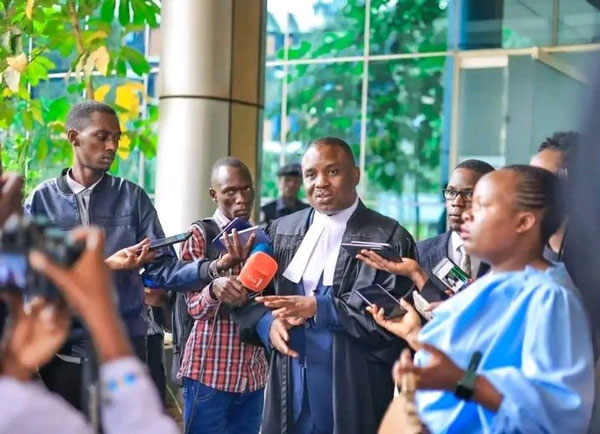
Kampala, Uganda | THE INDEPENDENT | The Kampala Capital City Authority, Lord Mayor Erias Lukwago has criticized the Uganda Land Commission for allocating land to different individuals and entities in Kampala yet they lack the mandate to do so. Unlike the Kampala district land board which is mandated to hold and allocate public land, Lukwago explains that articles 238 and 239 of the 1995 Constitution of Uganda mandate the Commission to hold and manage land on behalf of the public but not to allocate it.
He was speaking at the first Land Management and Administration conference by the Kampala Capital City Authority-KCCA at Mestil Hotel on Wednesday. He said that since the Commission has assigned itself the role of allocating land, it has ended up allocating land in wetlands and to single individuals who after acquiring it purport to sell the same back to the government soon after at a hefty cost.
Lukwago also said that there is no political will to protect the public land in Kampala, which is fast disappearing. Apart from KCCA not having a clear database of the public land in the City, Lukwago said, a lot of what existed for public benefit has been allocated to individuals.
He made reference to land belonging to schools like Kitante Primary School and Shimoni Demonstration School, which were allocated to private individuals. Shimoni was relocated to pave the way for the construction of a 5-star hotel although a business center with shops and office space was constructed instead, while Kitante had 10 of its acres of land allocated to a private doctor to construct a Women’s fertility clinic.
Lukwago expressed dismay that such deals are often facilitated by President Yoweri Museveni who at his discretion issues land to private individuals at the detriment of the general public and the close former owners of the land. The Lord Mayor said that this is partly how people end up holding freehold titles on public land in the city center.
Kampala grapples with challenges related to the management and administration of land. The existence of slums, dominantly on public and private mailo land, the degradation of the environment especially wetlands and drainage channels, and the limited road infrastructure that is overburdened by the over four million day and two-million-night population of Kampala.
Flavia Zabali Musisi, the Head of Geographic Information Systems at KCCA identified several reasons that affect the proper management and administration of land in Kampala. One of the reasons is that KCCA lacks property access to land records from the Ministry of Lands, despite the Land Registry office of the ministry being located at the KCCA headquarters. She said with this, they are unable to know who owns land in Kampala, how much, what do they with it, and whether it is developed or not.
Musisi further pointed to environmental degradation propagated by individuals and companies sometimes protected by other government agencies rendering KCCA unable to take any deterrent action to ensure that the ecosystem is not interfered with. She said there are several parties owning plots in preserved areas such as wetlands and Lake Victoria.
Musisi identified the issue of land ownership as a block in their efforts to properly manage land for the development of the City. According to the KCCA data, 34 percent of land in Kampala is public mailo, 30 percent private Mailo, 24 percent of lease leasehold, and seven percent freehold while five percent is covered by Lake Victoria.
A trained physical planner and Urban Specialist, Musisi said that KCCA doesn’t own significant land if any to carry out development projects such as the construction of schools, hospitals, or decent housing for slum dwellers. She said that sometimes, the authority is unable or delays setting up developments because it should first acquire land which is expensive.
On her part, Naome Kabanda, the Ag Director of Land Management at the Ministry of Land identified the politicization of land as a major challenge. She said that apart from the committees charged with land management being appointed politically, the qualifications required are insufficient to assure the public of competent people occupying those offices.
She also hinted on the obsolete laws including provisions such as one requiring an individual processing for land to facilitate financially, the area land committee to do its work. This, she said opens room for the public to exercise authority over the land committees which are also focused on the money rather than where the land they are allocating is located.
The KCCA Executive Director Dorothy Kisaka said the conference marks just the beginning of the inter-ministry and agency collaborations to ensure proper land utilization, management, and administration in the city. She said Kampala cannot attain the dream of being a smart city unless its land is properly managed, a clear physical plan implemented and different infrastructural development set up in the city.
****
URN
 The Independent Uganda: You get the Truth we Pay the Price
The Independent Uganda: You get the Truth we Pay the Price



